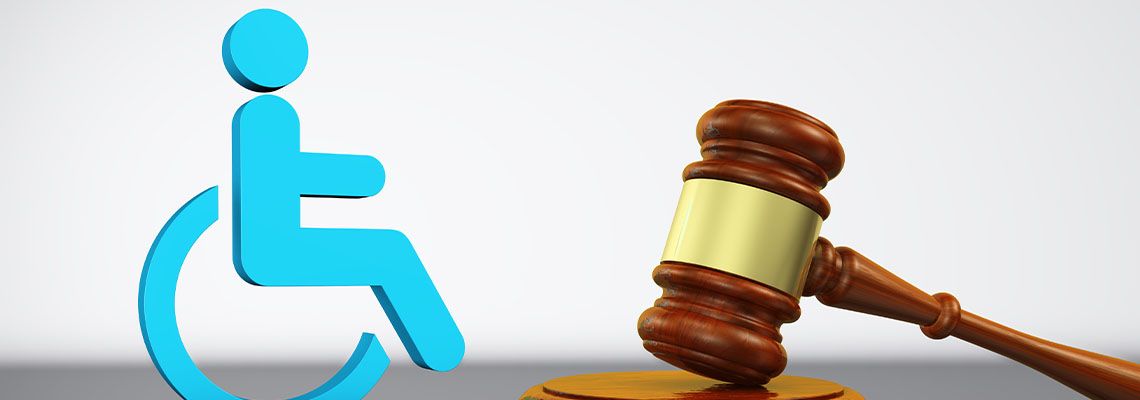
Common Misconceptions About Social Security Disability
If you’ve recently become disabled and are trying to secure Social Security disability benefits, you know how overwhelming and confusing this process can be. There are a number of misconceptions about Social Security disability that should be cleared up before you apply. Understanding the process as a whole may increase your chances of receiving benefits. For example, if your disability stemmed from a workplace accident, many people don’t know that you may be able to receive both Social Security disability benefits and workers' compensation. In fact, in 2021, 414,000 individuals receiving disability also filed for workers’ comp.
To speak with a Social Security disability attorney and learn more about this and other useful facts, reach out to us at Gordon, Wolf & Carney in Towson, Maryland. We’re here to help you move forward.
Common Misconceptions Debunked
If I return to work, I’ll lose Medicare or Medicaid.
Medicare and Medicaid are health insurance programs and therefore different from benefits you may receive through the Social Security Disability program. However, many people on disability also receive healthcare this way and may be concerned about losing coverage if they go back to work. This fear is somewhat warranted, but it’s never guaranteed you’ll lose your insurance simply because you go back to work. As long as you’re currently receiving SSDI or SSI, you will typically always keep your Medicare or Medicaid coverage. The SSA has a number of programs in place to help people transition back into work without having to worry about losing their coverage through work incentives or their Ticket to Work program.
You can’t receive Social Security disability if you are already receiving workers’ compensation.
False. Many beneficiaries receive both SSA disability benefits and workers’ compensation, but both benefit amounts will have to be accounted for. For example, if you’re already receiving workers’ comp when you apply for SSDI or SSI, your monthly payment will be counted as a source of income and may reduce your disability payment.
If I hold any kind of job, my Social Security benefits will stop.
This is also false. There are many people on disability who also work and earn money. The only requirement is that any income you take in from your employment must be below the limit for “substantial gainful activity” (SGA). In 2023, this amount is $1,470 a month. If you earn more than this, you may be denied benefits, but if you earn less and work fewer than 20 hours a week, you may still be eligible for disability payments.
Social Security disability benefits are only for retired people.
While it’s true that Social Security does make payments to older individuals age 62 and up, anyone who qualifies (regardless of age) can receive Social Security disability benefits. In general, to qualify for SSDI, you must show that you’ve “paid in” to the system (ie. have worked enough to contribute to the Social Security fund), and that your medical condition fits the SSA’s definition of a “disability.”
Social Security disability is only available for physical disabilities, not mental disabilities.
The Social Security Administration recognizes both physical and mental impairments when determining who’s eligible for disability benefits. The only requirements are that your condition prevents you from being able to work and engage in SGA and that the impairment is expected to last at least 12 months. It’s important to contact an attorney to learn more about these requirements.
You have to be permanently disabled to receive Social Security disability benefits.
SSA disability benefits are available for those whose condition is predicted to last at least 12 months, so you can receive payments even if you don’t have a permanent disability. Do note that if your condition is expected to improve, you will be subject to more frequent reviews which can occur as often as every six months.
If I return to work and then my medical issues return, I’ll have to start the process all over again.
While this may be true for some people, in the majority of cases, you will not need to re-qualify for benefits if you return to work only to find out that your condition has returned and once again makes it impossible for you to work. Most people will be able to return rather easily to earning SSDI or SSI payments should this happen.
Your doctor is the one who decides whether or not you qualify for Social Security disability.
This is incorrect. While your doctor and other medical providers will be contacted and consulted about your disability claim, they are not the ones who will be deciding whether or not you’ll qualify for benefits. An SSA medical examiner and disability specialist will review your claim holistically, looking at all the information and evidence you provided as well as factoring in your employment history and interview.
Seek the Answers You Need
At Gordon, Wolf & Carney in Towson, we’re able to represent clients seeking Social Security disability benefits throughout the entire country and we can help you, too. Give us a call today to schedule a consultation so we can discuss your options and get you the help and financial aid you need.
